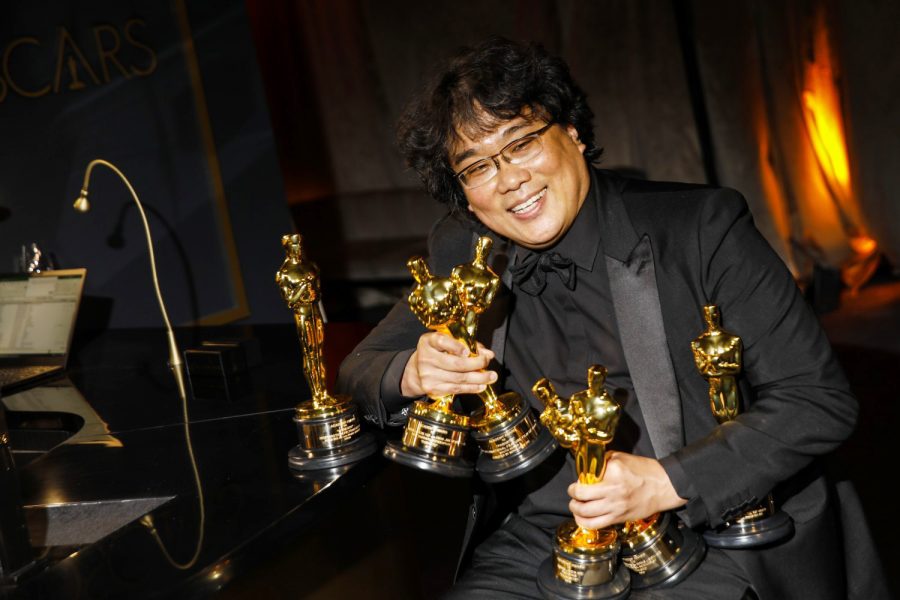Opinion: The anonymity of the Academy Awards is elitist
With the progress of representation in the Oscars, audiences should know the identities of anonymous Academy members.
HOLLYWOOD, CA – February 9, 2020: Bong Joon Ho, winner of the director Oscar and international feature Oscar for "Parasite" at the Academy Awards Governors Ball on Sunday, February 9, 2020 at the Dolby Theatre at Hollywood & Highland Center in Hollywood, CA.
February 10, 2020
“And the Oscar goes to… Parasite.”
I shrieked loudly at my laptop screen in total joy. The Dolby Theater roared.
I watched as South Korean director Bong Joon Ho ascended to the stage to receive his fourth Academy award. Parasite has become the first international, non-English film to win Best Picture of the Year.
Finally, a film that is outside of an American narrative has been given the highest recognition a one can receive. This achievement is immense, not only for Bong, but for the entire industry of film. An Asian director and his Asian cast have risen to center stage, and all of Hollywood stood and applauded them loudly.
A “thank-you to the Academy” was drowned out in the noise of the praise. I could easily write my own praise of the film, but it was this particular thank-you to the Academy where a thought resonated.
Who even is the Academy? Why is their choice of Best Picture an international, subtitled film, only now in 2020? The short answer is the public doesn’t know.
What is known is that the Academy’s audience wants it to change, to recognize the worldwide talents in cinema. For the Academy Awards to continue to evolve in its landscape of recognized artists, the anonymity of the Academy should dissolve. It’s elitist.
A quick search on the internet can tell you that the Academy of Motion Picture Arts and Sciences is made up of around 7,000 members. Members are established filmmakers, many of whom have won an Oscar themselves within the last decade.
But even a win at a major film festival like the Academy Awards isn’t exactly a guarantee to become part of the Academy itself. Membership is through invitation, not application.
It’s basically a club — a powerful, cinematically-brilliant club. But it’s a club that, for decades, has awarded mostly white, English-spoken narratives produced and directed by white men.
So, the audience can assume from this who may make up the Academy.
Only in the past five or so years has the Academy begun to place their value on films created by a wide landscape of gender, racial, and sexual identities.
Bong himself said famously in an October 2019 interview with Vulture that “the Oscars are not an international film festival. They’re very local.”
This is in part what makes Bong’s four-time Oscar win such a victory. His comment of the Academy awards — his film Parasite itself — is not just a critique, it is a reality.
The Academy’s internal circles need exposure. Audiences can assume “who” the Academy may be, but not knowing the identities of a high-class organization where true representation in film is becoming more demanded does not sit well.
While one can question why audiences should hold high the secret vote of an anonymous body, what does bring hope are those outside of the Academy.
From the #MeToo movement to Native American land acknowledgement, Hollywood has begun to speak on behalf of the Academy in defense of proper recognition to artists who are neither white nor male.
The Academy’s influence would do well to discard the elitisms of its anonymity and fully apply true representation in the film industry.
Columns reflect the opinions of the authors and are not necessarily those of the Editorial Board, The Daily Iowan, or other organizations in which the author may be involved.






